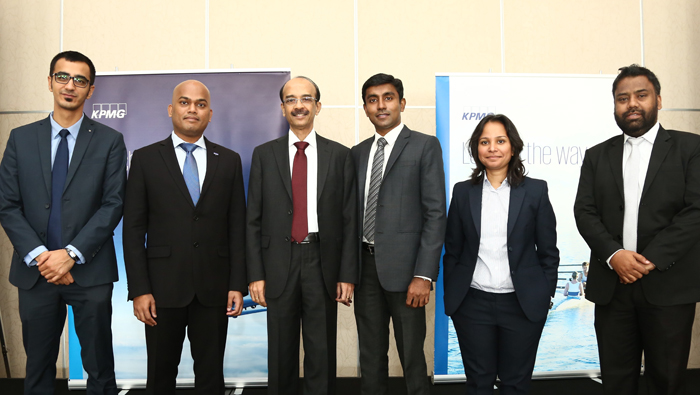
Muscat: KPMG Lower Gulf’s (KPMG LG) Muscat office held a seminar in Muscat to discuss amendments to the Executive Regulations (ERs) of the Oman Income Tax Law introduced in February 2019 that are likely to impact many tax payers in Oman.
The event shed light on matters related to withholding tax and helped participants to better understand its potential coverage and possible impact on past transactions.
Ashok Hariharan, Partner and Head of Tax, KPMG LG, opened the seminar by providing an update on tax trends including the recent developments and their possible implications to businesses.
Meenakshi Sundaram, Tax Director with KPMG LG, provided insights on recent changes to withholding tax provisions related to services and explained in detail the list of seven categories of payments for services excluded from withholding tax. Sundaram also mentioned that the new amendments to the ER defined the term ‘realised in Oman’ to mean whenever the source of such funds is from Oman.
According to the new amendments, the term ‘interest’ has been defined and withholding tax obligations for banks have been reduced through key exclusions in the definition of ‘interest’ said Rakesh Jain, Tax Director with KPMG LG. Rakesh also explained the changes in relation to dividend withholding tax and introduction of the Domestic General Anti-Avoidance Rules (GAAR) related to withholding tax.
Parvinder Singh and Sandeep Kumar, Senior Managers with KPMG LG, addressed the developments related to tax cards, electronic proceedings, search and seizure, expense deductibility, tax for small tax payers, and other procedural amendments.
The concept of a ‘tax card’ requires every taxpayer in Oman to mention a tax card number on all correspondence, invoices, memoranda, contracts or other similar documents entered into by the taxpayer.
Regarding expense deductibility, previously, bad debts were allowed as a deduction only if the taxpayer complied with certain conditions, including undertaking legal proceedings in relation to bad debts exceeding OMR1,500. The amendments have now made it more onerous to acquire a deduction by requiring taxpayers to demonstrate actions taken to recover the debts post the legal verdict.
Managerial remuneration to partner/proprietor – limits on deductibility of salary to partner/proprietor has been increased to OMR3,500 per month (earlier OMR3,000) or 35 per cent (earlier 30 per cent) of taxable income in case of company/establishment practicing professional activities and increased to OMR1,500 per month (earlier OMR1,000) or 25 per cent (earlier 10 per cent) of taxable income in case of other companies/establishments.
Amendments to the ERs have also specified certain additional conditions for granting exemptions to tax payers engaged in the field of industrial activity. Additional conditions require a minimum investment in fixed assets not less than OMR1 million and Omanisation quotas (as specified by the Ministry of Manpower) to be achieved during the last three financial years of the exemption period.
Aabha Lekhak, Indirect Tax Director with KPMG LG explained the nexus between VAT and withholding tax and the potential VAT treatment of the categories of payments currently excluded from withholding tax. She also touched upon other issues businesses need to consider in respect to transactions affected by the amendments to the ERs of the Oman Income Tax Law, upon introduction of VAT in Oman.
The seminar was attended by close to 100 participants. Hariharan said, “Our goal was to provide some guidance as to how these amended ERs may impact businesses, including past transactions, and discuss the likely challenges and potential implications of the amended ERs for tax payers in Oman and foreign payees”.